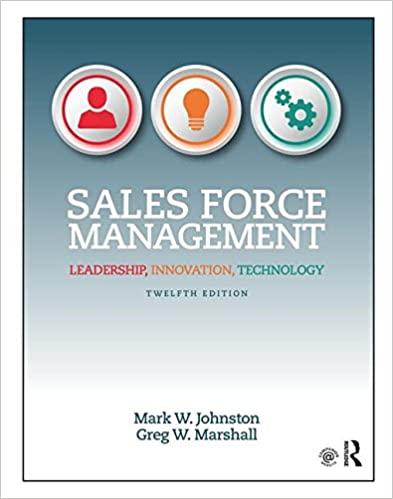The chapter mentions the theory of transaction cost analysis (TCA). What role does TCA play in the
Question:
The chapter mentions the theory of transaction cost analysis (TCA). What role does TCA play in the decision to use a company sales force rather than independent manufacturers’ agents?
Theory Transaction Costs Analysis
The theory of transaction cost analysis (TCA) states that when substantial transaction-specific assets are necessary to sell a manufacturer’s product, the costs of using and administering independent agents (i.e., the manufacturer’s transaction costs) are likely to be higher than the costs of hiring and managing a company sales force. This is because TCA assumes independent agents will pursue their own self-interests—even at the expense of the manufacturer they represent—when they think they can get away with it. For instance, they might provide only cursory postsale service or expend too little effort calling on smaller accounts because they are unlikely to earn big commissions from such activities. Because agents are most likely to be able to get away with such behaviors when it is difficult for the manufacturer to monitor or replace them, the transaction cost of using agents under such circumstances is likely to be high.
Recently, however, analysts have questioned TCA’s assumption that independent agents will always put their own short-term interests ahead of those of the manufacturer when they can avoid getting caught and replaced. These analysts argue that when both manufacturer and agent believe their relationship can be mutually beneficial for years, norms of trust and cooperation can develop.
Step by Step Answer:

Sales Force Management Leadership Innovation Technology
ISBN: 9781138951723
12th Edition
Authors: Mark W. Johnston, Greg W. Marshall





